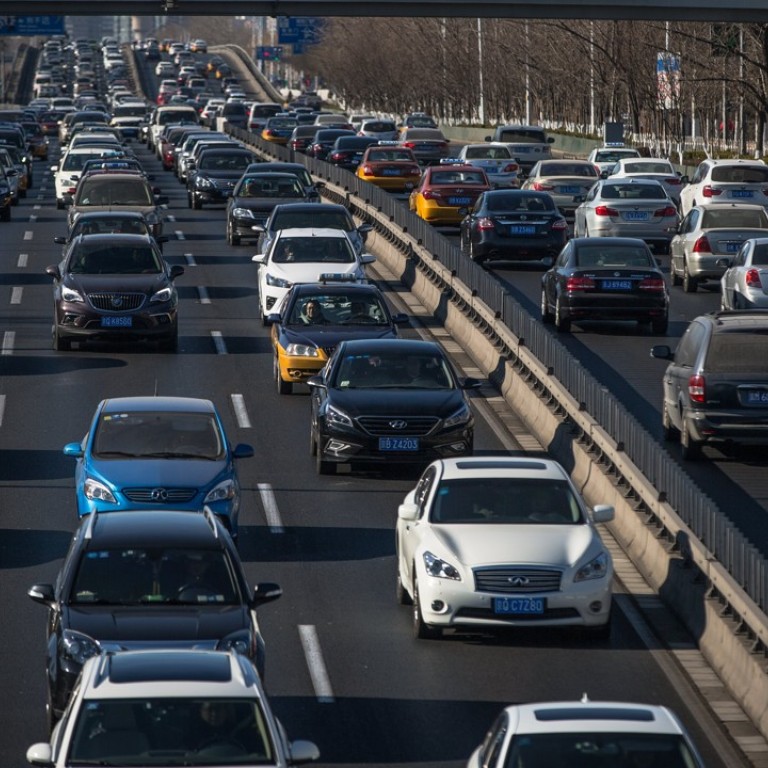
Big data and AI – the future of car insurance according to China’s first internet-only insurer
ZhongAn plans ‘ecology that includes various scenarios for the future of the automotive industry’
Big data and artificial intelligence are at the heart of a platform announced last week by ZhongAn Online Casualty and Property Insurance, China’s first internet-only insurer.
“Mobile internet and digital technologies are transforming the car industry. So the car insurance industry must change as well,” Wang Yu, head of car insurance at ZhongAn, said in an interview with the South China Morning Post.
The platform will include companies along the car value chain and provide a one-stop shop for buyers and owners. “Imagine shopping for your car and you can take care of matters related to car purchase insurance, loans, after purchase services, investment management and usage-based car insurance (UBI) during one visit,” said Wang.
The platform will help ZhongAn boost its car insurance revenues and increase its share in China’s increasingly competitive car insurance market, which was worth US$112 billion in 2017.
“It’s more than just car insurance. Through the platform, we want to build an ecology that includes various scenarios for the future of the automotive industry,” Chen Jin, the ZhongAn chief executive, told a press conference in Beijing last week.
ZhongAn’s platform will have four segments – car retail, car finance, transport and connected cars. The company has partnered with dozens of companies to offer relevant services on the platform, including car manufacturers Changan Automobile and BYD, online car retailers Yixin Group, Guazi.com and Maodou.com, ride-hailing company Didi Chuxing and designated driver app eDaijia.
“There is a lot of untapped demand, or consumers’ concerns during a car-related transaction process – we hope to find them and offer solutions based on big data and by working with partners,” said Wang.
For instance, for consumers worried that what they pay for online will not match what they get, the company has designed a car-return insurance that addresses such concerns. For some young people who might not have the money to buy their first car, the platform will customise financial services and will gauge whether it can help them purchase a car ahead of time.
UBI, also known as connected car insurance, can offer drivers better discounts based on their mileage and behaviour. Insurers can also redesign policies for next year based on drivers’ behaviour. This practice, an emerging trend in developed markets, is still relative new to China.
ZhongAn wants to launch UBI policies that can be predictive and user-based soon. And data is at the heart of such an ecosystem – it will assist in customising policies based on different scenarios.
“One company’s data may not be enough,” Peng Yong, head of the big data lab at ZhongAn, said during an interview. “The more data we have, the more effectively we can solve the problem.”
In November, ZhongAn established a big data alliance with Sinosafe Property Insurance and Urtrust Insurance. The alliance allows the insurers to work together on certain issues facing the industry, including better pricing of insurance policies and combating fraud.
As a result of the alliance, ZhongAn has collected data related to more than 3 million vehicles, and has created a big data “magic cube”, which tracks users’ behaviour and shares the data with companies on the platform.
They use machine learning and analytics tools to analyse this data, with the purpose of improving user experience. For example, when customers use the platform to buy car insurance policies, the system can discover which steps users hesitate at the most, which could imply “inconvenience of online shopping” or potential problems.
Mobile internet and digital technologies are transforming the car industry. So the car insurance industry must change as well
“We have broken the online purchase process into 45 parts, and monitor and analyse data flows from each part. If we notice that users spend too much time in one part, then we know something may be wrong with it, or it has potential to be optimised,” said Wang. The system does automatic optimisation based on the results.
The strategy has played out well. The conversion rate for page visitors turning into real customers has improved to 6.5 per cent from 2.5 per cent at the beginning of 2017, Wang said.
“This is a big progress in virtue of the big data and digital technology,” he added.
ZhongAn is not the only insurer that has ambitions of building a car ecosystem. The Chinese automobile site Autohome announced in 2016 it would transform from an information company into a platform that included car retail, lifestyle, financial and information services. Its net profit jumped by 63 per cent year on year to 426 million yuan (US$67.6 million) in the third quarter of 2017.
PICC Group, China’s largest property insurer, also established its online car service unit Bang Bang Auto Service in December, with the aim of integrating online car retail, financing and after sale services.

